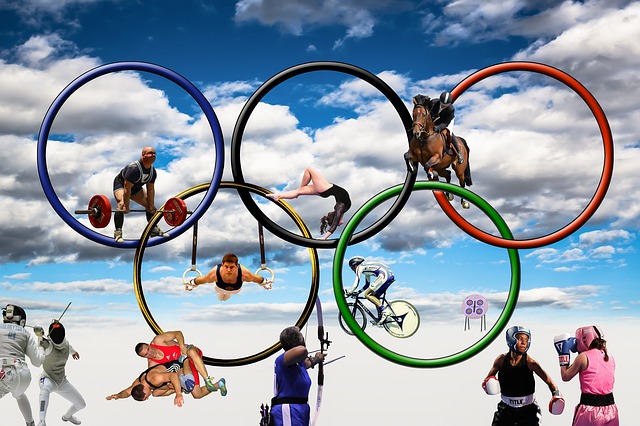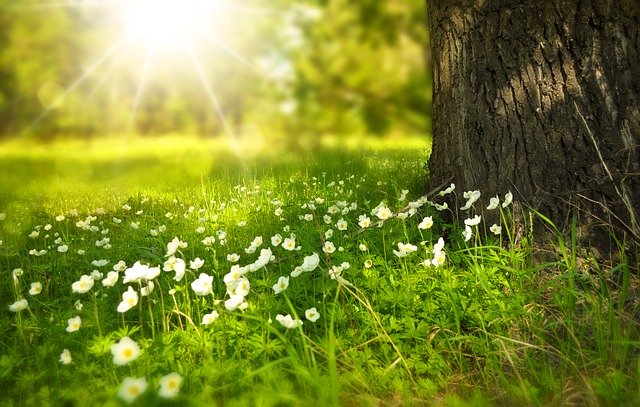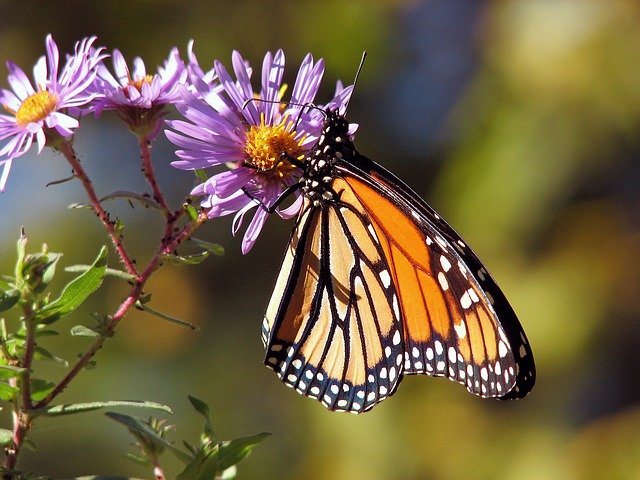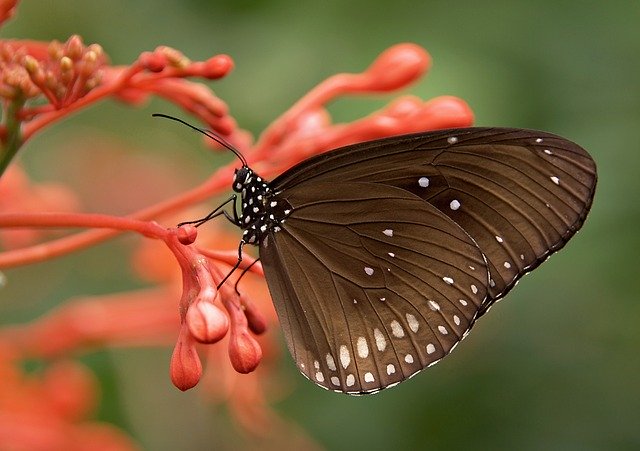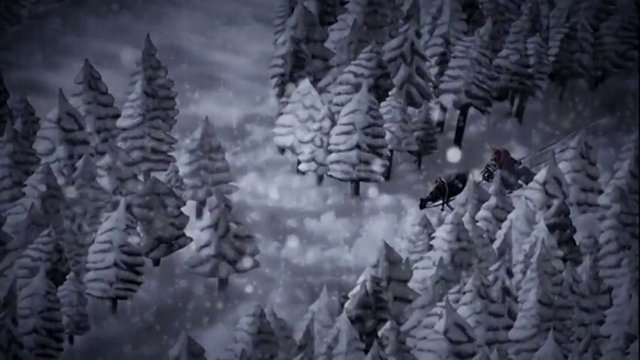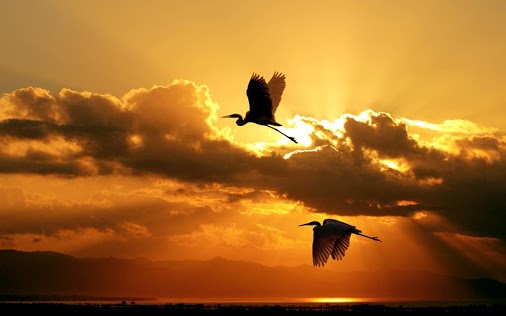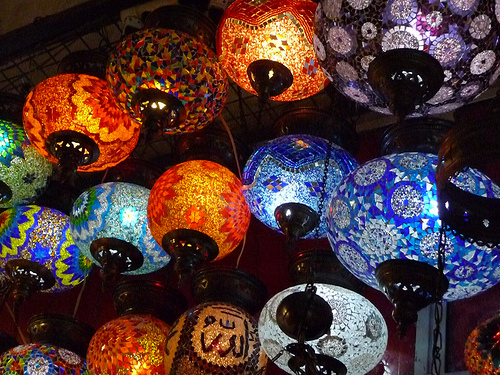Nature comprises the Nightingale and the Glow-worm setting. William Cowper has employed a bird and a worm to drive home the teaching that children of the same creator should not destroy each other but live harmoniously amongst themselves. By making objects of nature act according to this message, the poet has managed to deliver this truth as a law of nature.
The Nightingale and the Glow-worm Summary
This The Nightingale and the Glow-worm summary provides a stanza-wise explanation of the poem.
A Nightingale that all day long
Had cheered the village with his song,
Nor yet at eve his note suspended,
Nor yet when eventide was ended,
Began to feel, as well he might,
The keen demands of appetite;
When looking eagerly around,
He spied, far off upon the ground,
A something shining in the dark,
And knew the glow-worm by his spark;
So stooping down from hawthorn top,
He thought to put him in his crop;
The worm, aware of his intent,
Harangued him thus right eloquent:
There was once a nightingale who spent all its day adding cheer to the lives of villagers with its sweet songs. One day, as the evening was drawing to a close, the nightingale began to feel the pangs of hunger. Looking around for its meal, the bird spotted a glow-worm on the ground. Consumed by hunger, the nightingale stooped down from its perch atop a hawthorn tree and began devising plans to hunt and make a meal out of the glow-worm. The glow-worm, who was quick to understand the murderous intent of the nightingale tried to save himself by delivering an eloquent lecture in favour of his life.
‘Did you admire my lamp,’ quoth he,
‘As much as I your minstrelsy,
You would abhor to do me wrong,
As much as I to spoil your song,
For ’twas the self-same power divine
Taught you to sing, and me to shine,
That you with music, I with light,
Might beautify and cheer the night.’
The songster heard his short oration,
And warbling out his approbation,
Released him, as my story tells,
And found a supper somewhere else.
The glow-worm asks the nightingale if he admires his glowing body that seeps light into the dark surroundings. Fanning the nightingale’s pride, the glow-worm added that he admired the nightingale’s songs and would never do anything to deprive the world of the same. Similarly, even the bird should let him free, for just like the nightingale, even the glow-worm served an important purpose. The glow-worm further added that both he and the nightingale received their unique gifts from the same divine power. It was the same creator that taught the nightingale how to sing and the glow-worm how to light up the world, so that they both could make the world beautiful with their talents. The rationale given by the glow-worm made sense to the nightingale, and he sang in approval. The bird then released its prey and looked for food elsewhere.
Hence jarring sectaries may learn,
Their real interest to discern:
That brother should not war with brother,
And worry and devour each other,
But sing and shine by sweet consent,
Till life’s poor transient night is spent,
Respecting in each other’s case
The gifts of nature and of grace.
Cowper says that the warring factions of earth should learn something from the tale of the nightingale and the glow-worm. Just like the nightingale realized that both him and the glow-worm were children of the same creator with their own unique purpose, even men who fought each other should realize that they were, but brothers, put together on earth to help each other live a fruitful life. Hence, men should not cause problems for their fellow brothers or seek to destroy each other. Instead, they should make the most of the short life they have been gifted by respecting each other’s differences and unique gifts, such that a harmonious existence is theirs to enjoy.
Those Christians best deserve the name,
Who studiously make peace their aim;
Peace, both the duty and the prize
Of him that creeps and him that flies.
The poet ends the poem by saying that only those who dedicatedly work towards establishing peace in the world are worthy of being called Christians. Maintaining peace is the duty of everything that has life, no matter how different they are from each other. And it is only by fulfilling this duty can one reap the prize, which is a harmonious peaceful existence for one and all.
The Nightingale and the Glow-worm Central Idea
The Nightingale and the Glow-worm central idea revolves around the virtue of universal brotherhood. The nightingale first views the glow-worm as its prey, eager to eat the worm and satiate his hunger. However, the bird releases the worm free for it realizes that they both draw their life and gifts from the same divine source, and hence, are brothers. William Cowper wants humans to follow the same truth that fellow humans, despite all their differences, are brothers. And having come from the same creator, humans should respect each other’s unique gifts instead of fighting amongst each other for dominion.
The Nightingale and the Glow-worm Analysis
In this Nightingale and the Glow-worm analysis, we will engage with the poem at a deeper level.
One of the biggest problems plaguing the modern world today is that humans have become disconnected from their own divinity, forgetting that those around come from the same divine source as themselves. As a result, instead of seeing each other as brothers, humanity has become segregated into multiple warring factions who fight to champion their ideology, in a battle to establish superiority. In this context, this simple poem of Cowper’s leaves the readers with a powerful message.
The Nightingale and the Glow-worm is essentially a fable written in verse form. Just like in fables, we have animals behaving like humans and delivering a strong message, similarly, in this poem, we have a nightingale and a glow-worm encountering each other with human attributes. Through their encounter, the readers learn the powerful message of living in peace and harmony. The nightingale first views the glow-worm as its evening supper. However, the glow-worm manages to save his life by reminding the bird that they have both been sent on earth to beautify the world with their unique gifts, created by the same creator. Hence, instead of destroying each other, they must respect each other’s existence and live in harmony so that the world can be a better place. This rationale of the worm strikes a chord with the nightingale, who releases him and looks for supper elsewhere. If only humans could follow the example of the nightingale and the glow-worm, then there would be no wars in the world in name of religion and other differing ideologies. Humans have become so engrossed in their material existence that they have forgotten to see each other as brothers and have, instead, started to engage with each other as competitors. The result is a world where humans are divorced from each other on the basis of mad-made distinctions. However, in essence, humans are brothers who are sent on earth to help each other live harmoniously and purposefully. The day humans begin to practice this truth, their mutual differences and battle of dominion will seem inconsequential. They will begin to see each other as brothers who come from the same source, and thus, should approach each other with mutual respect.
Cowper also shares in this poem his views about religion. By specifically mentioning Christianity, Cowper asserts that no religion that plants the seed of human distinction can be serving its purpose truthfully. The aim of any religion is to foremost foster peace and harmony; and thus, to be a real child of God is to see fellow humans as brothers. Following this message of the poet can indeed bring universal harmony to the world.
The poem consists of 38 lines in total, which has been broken down into 4 stanzas. The first stanza has 14 lines, the second 12, the third 8, and the fourth 4 lines. The rhyme scheme of AABBCC has been uniformly followed throughout the poem.
The Nightingale and the Glow-worm Themes
Below are the The Nightingale and the Glow-worm themes:
Peace and Harmony: Through this poem, William Cowper has championed the virtues of peace and harmony. By giving the anecdote of the nightingale and the glow-worm, the poet has shown his readers how it is possible for even a predator and a prey to live harmoniously with each other by recognising that they come from the same divine source. Similarly, even humans should work towards establishing the same peace in their lives by recognising that the people they are fighting against are, but their brothers. It is only by respecting each other’s uniqueness and gifts can one truly enjoy life by reaping the fruits of a harmonious existence. The poet ends the poem by asserting that only those who work towards establishing a peaceful harmonious world can really be called Christians, for peace and harmony should be the abiding virtues of the children of God.
Divinity: Recognising the divinity within oneself and in others has been shown as the way forward towards a peaceful harmonious existence by the poet. Cowper says that once humans realize that they come from the same bountiful source, there won’t be any need to fight amongst each other for dominion. For this realization will make humans see each other as equals with their own unique gifts and talents. And once humans begin to see each other as the offspring of the same divine creator with their unique purpose in life, it will become easy for them to create a peaceful world where everyone lives in harmony, bound together by mutual respect.
The Nightingale and the Glow-worm Poetic Devices:
Cowper has used the poetic device of personification by giving humans attributes to nightingale and the glow-worm. They are shown engaged in a conversation and behaving like humans would.
The poetic device of metaphor has been used in the third stanza where humans with different ideologies have been compared to brothers. Another metaphor has been used in the same stanza where life has been compared to the night that always comes to an end.
Conclusion: The Nightingale and the Glow-worm
The Nightingale and the Glow-worm is a beautiful poem by William Cowper that touches the mind of the readers through its powerful message. In this poem, the poet tries to remind us of our divinity and the fact that all humans are brothers who come from the same divine source, and hence should not fight amongst each other for dominion. By showing the nightingale and the worm work towards a harmonious existence where they both help each other make the world a beautiful place, the poet encourages us to walk hand-in-hand with fellow humans and work towards bringing peace into the world.
Some online learning platforms provide certifications, while others are designed to simply grow your skills in your personal and professional life. Including Masterclass and Coursera, here are our recommendations for the best online learning platforms you can sign up for today.
The 7 Best Online Learning Platforms of 2022
- Best Overall: Coursera
- Best for Niche Topics: Udemy
- Best for Creative Fields: Skillshare
- Best for Celebrity Lessons: MasterClass
- Best for STEM: EdX
- Best for Career Building: Udacity
- Best for Data Learning: Pluralsight
